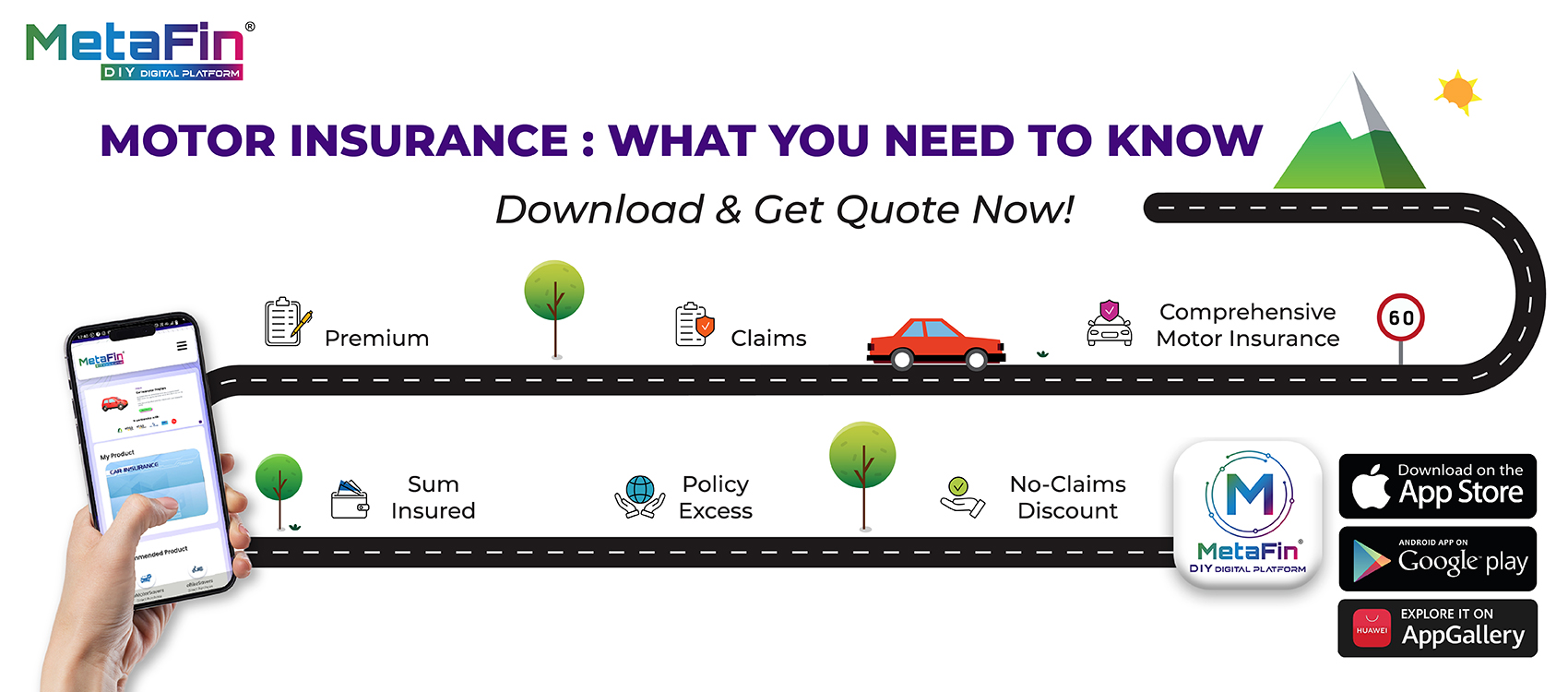“What is motor insurance?” is a question that every motorist knows the answer to as their car or motorcycle dealers have arranged a policy for them upon purchase.
But, for the sake of introduction, let’s articulate the meaning of motor insurance and the terminology associated with this subject matter. The world of motor insurance has a colourful array of jargons and this article intends to explain motor insurance vernacular for our reader’s edification.
So, strap yourself in the driver’s seat as we bring you on a ride through motor insurance’s everyday parlance.
What is motor insurance?
Insurance for vehicles can be termed as motor insurance, auto insurance, or car insurance. The term “car insurance” is often used prominently because more people opt for cars over motorcycles.
An insurance contract is a legally binding agreement to insure. The insured pays a premium and receives financial protection and compensation in the event of accidents.
The Malaysian Road Transport Act 1987 (RTA) mandates all motor vehicles to carry an insurance policy for the purpose of making funds available to compensate victims of road accidents, to reimburse for damages incurred and to alleviate the financial strain on the Government and safeguard the nation’s interests.
A person is in contravention of the RTA if they are without an insurance cover and will face a fine not exceeding RM 1,000 or imprisonment for a period of 3 months and upon the court’s judgement, the offender may have their driving licence revoked for 12 months from the date of conviction.
What is a Premium?
An insurance premium is the amount of money the motorist pays for an insurance policy. Some policies are paid in instalments such as health insurance, however, motor insurance is paid upfront in full before the coverage starts and extends coverage for only a year before it needs to be renewed in the following year.
In other terms, this is called a ‘cash before cover’ basis. The premium must be paid first before a motor insurance cover note or policy can be issued.
Once the premium is paid, the risk is transferred from the motorist to the insurer, who will act with utmost good faith to honour the agreement of providing protection.
What is Sum Insured?
Sum insured in insurance refers to the maximum amount of money that an insurance company agrees to pay out in the event of a covered loss or claim to the insured vehicle.
Other related terms you might encounter in the context of car insurance is coverage limit, policy limit or insured value.
There are several factors that affect the sum insured value, such as insuring your vehicle at Market Value or Agreed Value.
What are Claims?
A “claim” refers to a formal request made by the policyholder to their insurance company for compensation or coverage for damages or losses incurred due to an incident covered by the insurance policy.
There are three types of car insurance claims: Own Damage Claim, Own Damage Knock-for-Knock Claim and Third-Party Claim.
What is a Policy Excess?
A “policy excess” refers to the amount of money that the policyholder is required to contribute towards the cost of a claim before their insurance coverage kicks in. It’s essentially the portion of any claim that the policyholder agrees to pay out of their own pocket.
To illustrate, your vehicle sustained damages worth RM 10,000 and your policy carries an excess of RM 500, the first amount of payment borne by you is RM 500 and the remaining RM 9,500 payment is settled by your insurer.
What is a Comprehensive Motor Insurance?
Comprehensive motor insurance is a comprehensive coverage that provides extensive financial protection for your vehicle against a wide range of risks and perils.
The primary focus is on providing reimbursement for various scenarios, including accidents, theft, accidental fires, and third-party liabilities. Additionally, optional add-on benefits are available to further secure your car against natural disasters, riots, strikes, civil commotion, and medical expenses arising from accidents.
What is a No-Claim Discount?
No-Claim Discount, shortened to NCD, is a discount offered by insurance companies to policyholders who do not make any claims on their insurance policies within the past year. The discount is reflected in their premium calculation of the following year.
NCD serves as an incentive for safe driving behaviour and rewards motorists with lower premiums.
To wrap things up, these are just a few of the terms commonly used in motor insurance. Familiarizing yourself with these terms can help you better understand your insurance policy and make informed decisions when renewing your motor insurance.

